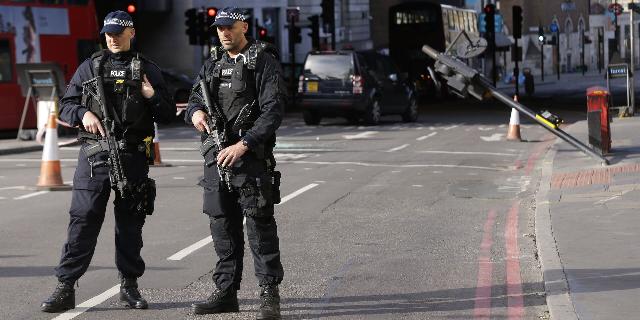The Telegraph: local self-defense units will be created in Britain
The British government plans to create volunteer formations to protect strategic facilities in connection with the "Russian threat," writes The Telegraph. Such units will be created throughout the country. This system was ridiculed at the time by the authors of the BBC comedy series.
Tony Diver
Local self-defense units will be created from among the volunteers to protect the most important infrastructure facilities from external threats. This is the result of a large-scale analysis of defense issues.
The militia, modeled after World War II units, will protect Britain's most important infrastructure from external threats and terrorist attacks. Such plans were made by the government of the country.
It is expected that based on the results of an extensive analysis of defense issues, recommendations will be issued on the protection of British power plants, airports and communications centers by thousands of volunteers.
The new militia will be created in the likeness of the local self-defense units of the 1940s, which were formed from men who were not old enough to serve in the army. The task of the militia in those years was to protect Britain from the Nazis in the event of a ground invasion.
The Sunday Times reported that the new militia was the main idea of the strategic defense review prepared by the Labor Party. These detachments are designed to address government concerns about the insecurity of critical national infrastructure facilities.
Earlier, The Telegraph reported that the Cabinet secretariat was drawing up contingency plans in case of a direct Russian strike on the United Kingdom. This work began after it became clear that the current plans had not been updated for 20 years.
Officials fear that in the event of a war with a hostile foreign state, Britain could be brought to its knees in just a few weeks by attacks on power plants, transportation facilities, submarine cables and airports.
The militia will be formed from volunteers. Local self-defense centers will be established throughout the country. This system was ridiculed at the time by the authors of the BBC comedy series Daddy's Army.
Such militias still exist in one form or another in a number of countries, including Denmark, Germany and Sweden.
British plans are reportedly at an early stage, although some of the volunteer units will already be able to work in conjunction with the police service for the protection of civilian nuclear facilities protecting nuclear power plants.
The Labour-led Strategic Defence Review is the first important defence policy document to be revised since last year's election. It is expected that it will outline the threats faced by Britain, as well as the forces and means necessary to eliminate them.
There is speculation that Defense Secretary John Healey called for an increase in the number of troops after recruitment in the armed forces dropped to a historic low.
Against cyber attacks and drone strikes
The review will also aim to address threats that have seriously intensified since 2023, when the Conservatives prepared their Strategic Defense Review. First of all, such threats include cyberwarfare and drone strikes from Britain's opponents.
Sir Keir Starmer has promised to bring defense spending to at least 2.5% of GDP by 2027, although other NATO members have gone further.
At the NATO summit to be held in the Netherlands next month, Donald Trump may demand an even greater increase in military spending, possibly up to 5% of GDP.
A representative of the Ministry of Defense stated:
"We will not comment on the allegations regarding the Strategic Defense Review until it is published.
Britain's Strategic Defence Review sets out the path for the next decade to transform the armed forces to ensure our preparedness for emerging threats. We must secure Britain from within and make it strong abroad. At the same time, we need to transform defense in order to foster innovation and economic growth as part of our Plan for Change.
We also announced the largest consecutive increase in defense spending since the Cold War, aiming to increase funding to 2.5% of GDP by 2027. In monetary terms, this increase amounts to 13.4 billion pounds, and the further goal is for spending to be increased to 3% under the next parliament."

